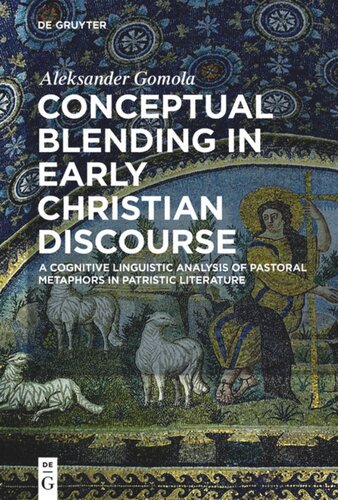

Most ebook files are in PDF format, so you can easily read them using various software such as Foxit Reader or directly on the Google Chrome browser.
Some ebook files are released by publishers in other formats such as .awz, .mobi, .epub, .fb2, etc. You may need to install specific software to read these formats on mobile/PC, such as Calibre.
Please read the tutorial at this link: https://ebookbell.com/faq
We offer FREE conversion to the popular formats you request; however, this may take some time. Therefore, right after payment, please email us, and we will try to provide the service as quickly as possible.
For some exceptional file formats or broken links (if any), please refrain from opening any disputes. Instead, email us first, and we will try to assist within a maximum of 6 hours.
EbookBell Team

5.0
48 reviewsCognitive linguists and biblical and patristic scholars have recently given more attention to the presence of conceptual blends in early Christian texts, yet there has been so far no comprehensive study of the general role of conceptual blending as a generator of novel meanings in early Christianity as a religious system with its own identity. This monograph points in that direction and is a cognitive linguistic exploration of pastoral metaphors in a wide range of patristic texts, presenting them as variants of THE CHURCH IS A FLOCK network.
Such metaphors or blends, rooted in the Bible, were used by Patristic writers to conceptualize a great number of particular notions that were constitutive for the early church, including the responsibilities of the clergy and the laity, morality and penance, church unity, baptism and soteriology. This study shows how these blends became indispensable building blocks of a new religious system and explains the role of conceptual blending in this process. The book is addressed to biblical and patristic scholars interested in a new, unifying perspective for various strands of early Christian thought and to cognitive linguists interested in the role of conceptual integration in religious language.
Produced with the support of the Faculty of Philology, Jagiellonian University in Kraków, Poland.